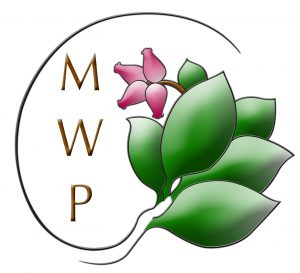Every writer does this–makes excuses about not having time to write, whether it’s the pressure at work, pressing family needs taking precedence, or— fill in the blank for an excuse: 1)______________2)_____________3)____________________4)________________etc. Does this ring a bell? Yank your chain?
Usually this kind of procrastination can hold a writer back from completing a writing project–it can prevent that novel from getting written, delay the book of poems from seeing daylight, or hinder the query letter from being finished. This is not productive!
I have found that the best method to solve writer’s block and procrastination in writing your novel is to write in rebellion.
Yes, you heard right. Rebel against another activity that is distasteful.
Go ahead and procrastinate! I give you permission, even. But…..Procrastinate with something else!
Find an activity that you should be doing, and to avoid doing that activity, sit down and write instead. This works out pretty well for me. Here’s a handy list of things you can choose NOT TO DO so that you can make time to write. This is a healthy counterbalance to feeling guilty about not writing. It’s good for about 2,000 words of a rough draft of a short story, about 3,000 words of a novel chapter, or several poems.
The following is a handy dandy list of procrastination ideas to get you started:
1. Rebel against cleaning – Pretend you’re a Bohemian writer living in Soho or Greenwich Village in the 1960s or early 1970s. No one visiting you in this imaginary Bohemian artistic world would mind if there were earthy leaves lining the bathroom floor, brought in with the wind, or a little fashionable clutter on your table, or even unmade beds. Being slightly slovenly was fashionable then–and also fashionable today. Artists and writers used to sleep on their pin-striped mattresses without sheets and leave dirty dishes in the sink, sport unemptied ashtrays proudly displayed on coffee tables, and treat guests to a trail of clothing casually draped over furniture. Ah, the good old days when non-materialism prevailed in the midst of wealth. Artists and writers coveted their preoccupation with their craft and their avoidance of worldly material clutter. Since you’re creative, you have no time for such mundane things as making a sink shine. You have more important things to do, like write your novel and make a splash in this world. You have important things to say.
2. Yard work — ignore it. Let the weeds take over. Don’t fuss over pulling a few errant plants or trimming off some of the dead stuff and fussing over detritus.These wild entities are perfectly natural in a garden. Why fight nature? You are an eco-naturalist and environmental protective agent. Get your journal out and go sit on your deck or yard and write while a gentle breeze and the warm sun massage your skin. Don’t look at your scruffy plants. The weeds will just get a little higher and become natural sculptures in your garden. Unwanted greenery even adds nutrients in some cases.
3. Call in sick one day to your daily job. You could be sick if you continue like you are going–ignoring your creative side. Take a mental health day. Write in rebellion. Don’t answer any calls from work since you’re in bed writing.
4. Rebel against checking your calendar and list of to-do items. Un-check the check marks on your list by turning them into little O’s, then leave your Franklin or little leather planner by its lonesome and take off on a journey–a day trip. Get in your car and go somewhere — without a plan. Have your laptop with you or your spiral writing notebook and a collection of favorite pens. Stop in a cafe for lunch or coffee and deliberately sit near people, and write down people’s conversations near you. Write this into your book-in-progress. You’ll never see these people again. Or park near a natural landscape that inspires you. You could do this on the day you call in sick and take care of two things on this list at once.
5. Rebel against random shopping. Instead of going to the local drugstore or grocery store and buying things you actually need, but could well do without, put off the trip. Sit down and write instead. You can use that little box of baking soda sitting in your refrigerator to brush your teeth for a couple of days. Economy and thrift help writers to succeed in finishing their projects. Think how much money you will save!
6. Add your own activity that you can avoid right here: ___________________________.
Think of all the things you can procrastinate in doing–distasteful things and those chores you just can’t bear: finishing a project at home; washing your car or cleaning up the garage; doing extra things at home for your job; cleaning out the closets and sorting through memorabilia deciding what to give away to goodwill or what you can keep; or whatever you dread doing. Whatever. Make your list here so that you can choose one at any time to avoid when you need to write.
So, what are you waiting for? Quit procrastinating about writing and procrastinate with some other activity instead! Write in rebellion. Get to your keyboard or writing journal and fire away while you neglect something else. Your guilt in ignoring the things you are supposed to be doing will be assuaged by the pleasure in writing. The underlying guilt will also give you an edge and a sense of urgency. If you do this at least once a week, picking one task or item a week, you should have a chapter a week finished and your novel completed in 24 weeks!
The other things, well, they will pile up. So what? Your book will be read by others and may even become art valued by millions of readers some day in a few hundred years. Who will care if you didn’t weed your garden or whether that little dust bunny grew into a monstrous rabbit that popped out. like from Lennie’s head in Of Mice and Men, Steinbeck’s little novel that the dog almost finished off. Or the March Hare from Alice in Wonderland. Or Peter Rabbit running from Mr. MacGregor. But I digress, good thing, instead of doing what I should be doing, like swishing the toilet with a brush and cleaning the cat box. Yes, I digress. Blissfully so.
 Manzanita Writers Press is situated in Historic Downtown Angels Camp, surrounded by wonderful artists and writers’ books in a gorgeous gallery. MWP publishes local and regional authors, community anthologies and historical collections.
Manzanita Writers Press is situated in Historic Downtown Angels Camp, surrounded by wonderful artists and writers’ books in a gorgeous gallery. MWP publishes local and regional authors, community anthologies and historical collections.

